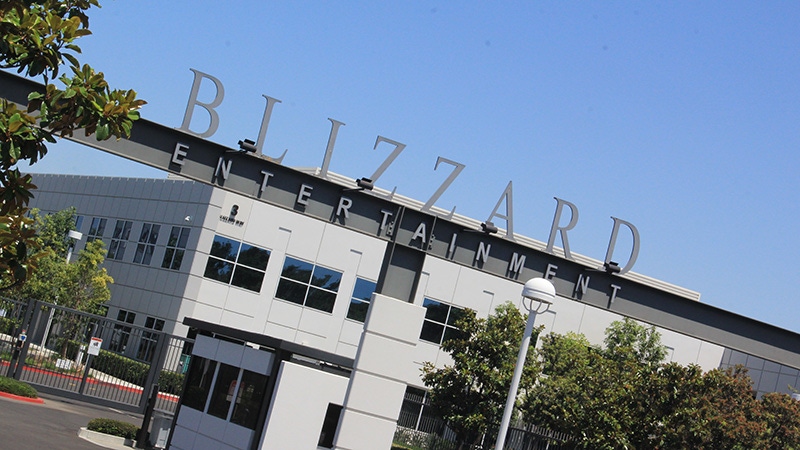Trending
Opinion: How will Project 2025 impact game developers?
The Heritage Foundation's manifesto for the possible next administration could do great harm to many, including large portions of the game development community.
Update: Activision Blizzard is rebuffing a federal judge's decision to not shut down the State of California's lawsuit against the company for allegations of sexual harassment and discrimination.

Activision Blizzard's two major legal efforts to shut down the State of California's lawsuit against the company for allegedly fostering a culture of sexual harassment, abuse, and toxicity have been denied by a federal judge.
The legal decisions were first spotted by Axios, which detailed how Superior Court Judge Timothy Patrick Dillon denied Activision Blizzard a quick end to the lawsuit filed by the California Civil Rights Division (CRD) in 2021. California's Civil Rights Division filed the lawsuit while it was called the California Department of Fair Employment and Housing, or DFEH for short.
After Activision Blizzard responded to the lawsuit with defiance, current and former employees at the company began sharing stories about their experiences and expressing outrage at the company's stance. A year of controversy and walkouts would follow.
Dillon made two notable rulings on this case. On August 10, he denied a request by Activision Blizzard for summary judgment. The Call of Duty and World of Warcraft publisher had claimed that the CRD rushed its case to court to get ahead of a lawsuit filed in federal court by the Equal Employment Opportunity Commission (EEOC).
An Activision Blizzard spokesperson defended the company's stance, stating that "This was a procedural motion, not a ruling on the merits of the case. The DFEH never completed an investigation - including into pay equity. The DFEH even failed to follow its own investigative requirements and conciliation procedures."
On August 16, Dillon denied a request from Activision Blizzard to acquire more records from the CRD regarding its employment of lawyers who'd previously worked on the EEOC's case against the publisher.
Activision Blizzard has made multiple public comments about how the overlap in legal representatives was a potentially disqualifying ethics violation. According to Dillon, the ethics rules in question were written to address lawyers who switched sides during a lawsuit, or prosecuted a case after moving from public practice to private practice.
"Far from promoting the public interest, any attempt to disqualify Plaintiff strongly conflicts with public policy," he ruled.
Addressing this comment, the spokesperson again disagreed with Dillon. "The EEOC first raised this DFEH ethical violation last year and considered it so serious that the agency refused to meet with any lawyers from the DFEH and warned DFEH’s lawyers of possible criminal violations," they stated.
"Since then, not a single staff lawyer from the DFEH has made an appearance in federal court, and we’re confident that the same should happen in state court."
They went on to say that Activision Blizzard will continue to make the case that the CRD flouted ethical standards and "refused to play by the rules."
Questions about the viability of the CRD's case against Activision Blizzard began to arise in late 2021, when news about the cross-pollination of some legal representatives from EEOC to CRD became part of the publisher's legal strategy. A judge ruled against Activision Blizzard's initial attempts to get the lawsuit thrown out.
In April 2022, a small amount of state-level legal drama emerged when two lawyers working on the case first stepped away from the lawsuit, then exited the agency. Chief counsel Janette Wipper was fired (allegedly at the request of Governor Gavin Newsom or his office), and assistant chief counsel Melanie Proctor resigned in protest, claiming Newsom was interfering in the case.
A spokesperson for the Governor's office denied that claim.
Wipper had previously helped the CRD prosecute its case against Riot Games, which settled its lawsuit with the agency for $100 million.
If no more procedural issues dog the agency, it appears this lawsuit will proceed onward. There's still time for the CRD to settle the case with Activision Blizzard, though the company's determined denials of the CRD's charges against the publisher indicate it will be some time before that might take place.
Update: This story has been updated with comment from Activision Blizzard.
You May Also Like